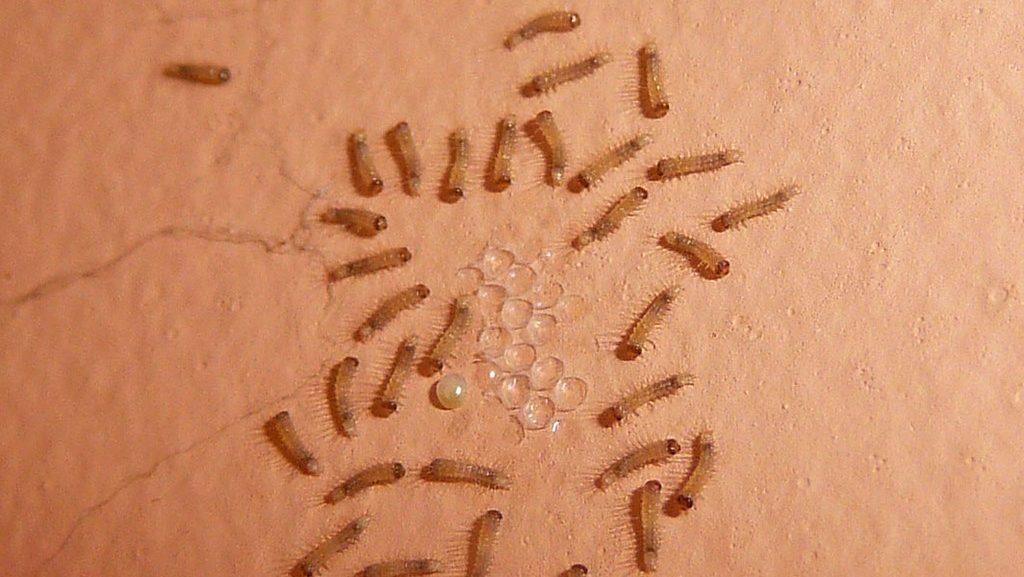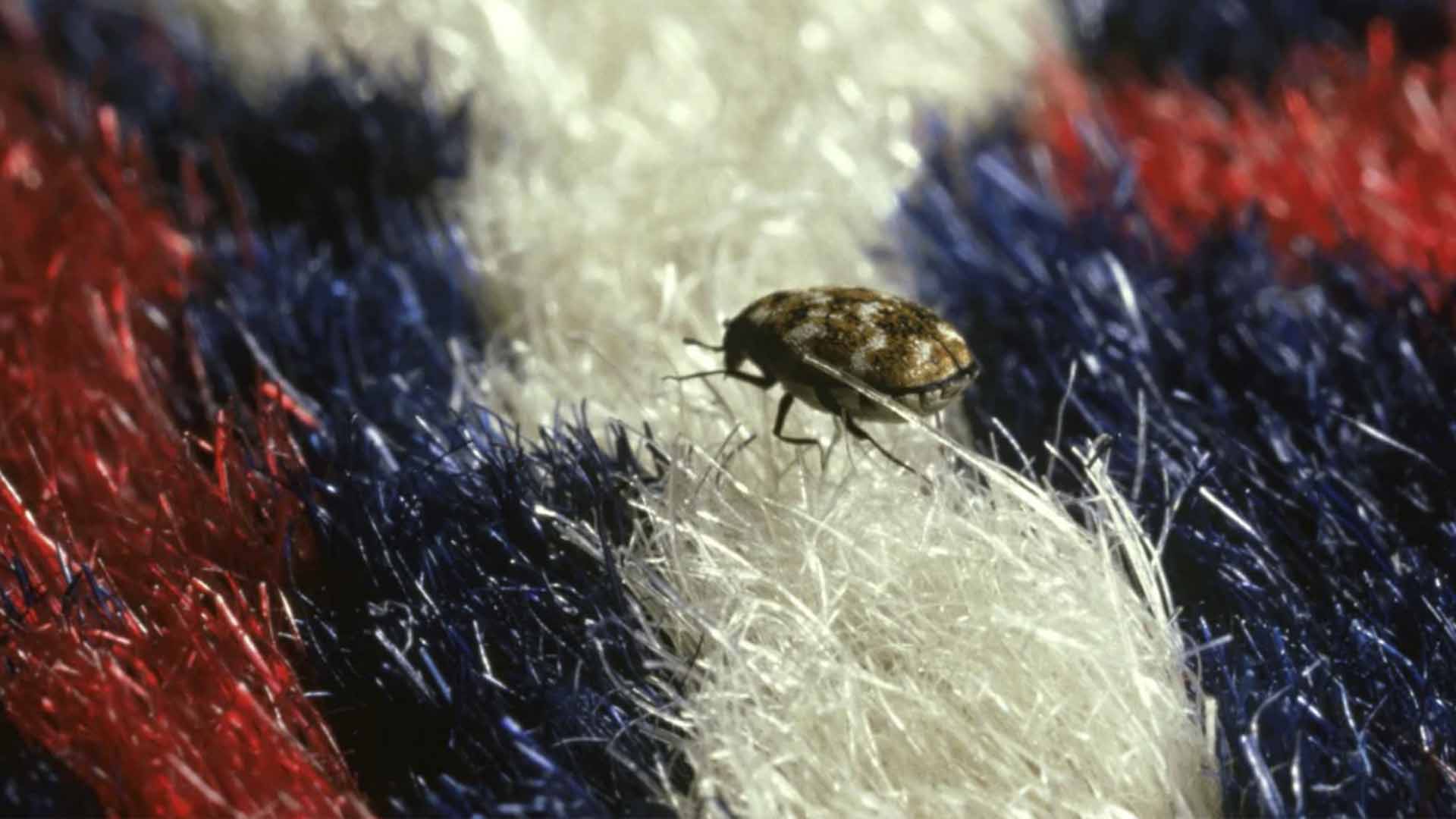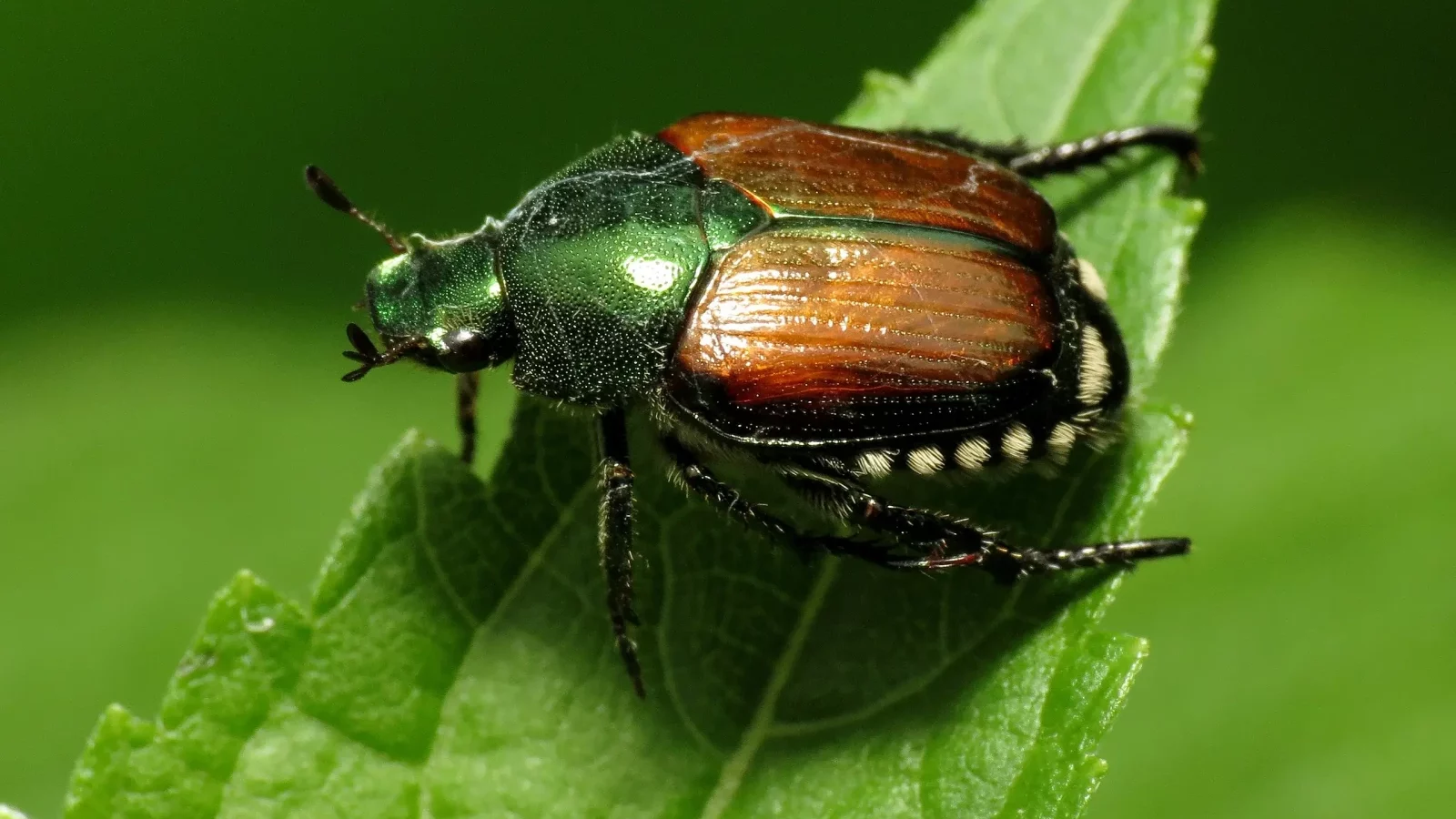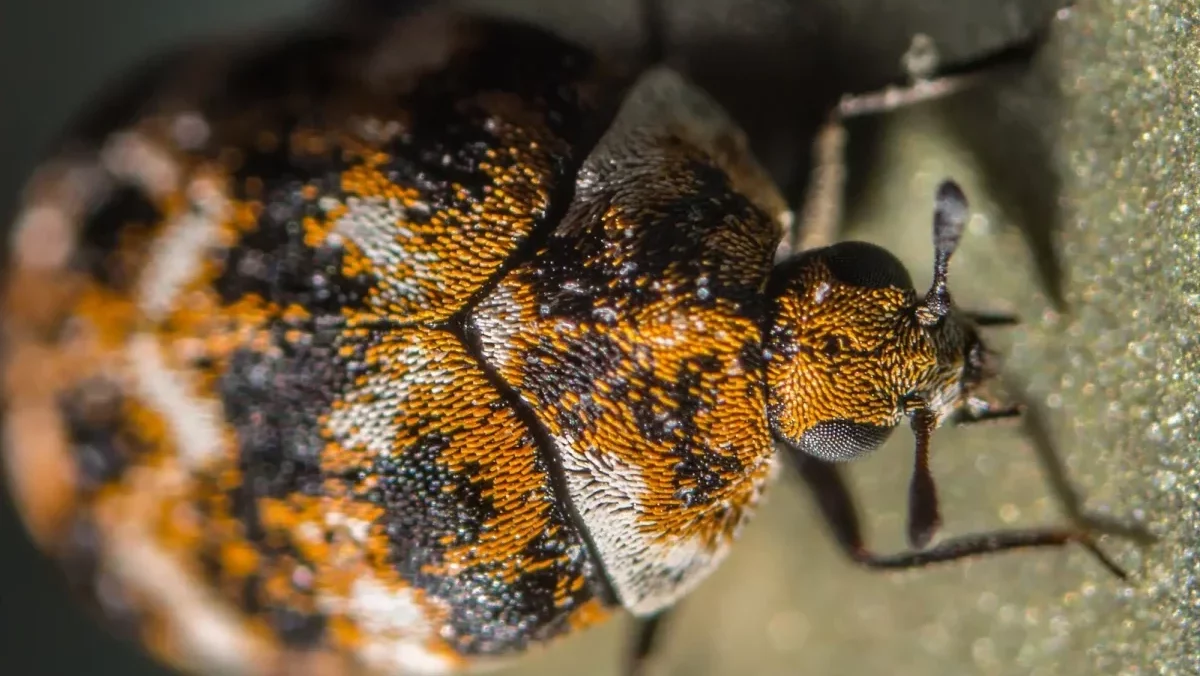Beetles are among the most diverse group of insects on the planet, with thousands of species found in nearly every habitat. When we think of beetles, we often picture the hard-shelled, winged adults. However, the early stages of a beetle’s life are just as fascinating. Many people don’t realize that their young, or larvae, look entirely different from their adult counterparts.
In this article, we will explore what a baby beetle looks like, what it is called, and prevention tips.



 Beetle larvae often have specialized mouthparts suited to their diet, such as chewing mandibles for wood-boring species or tiny hooks for feeding on plant material, showcasing their adaptability even at this early stage of development.
If you spot any of these signs, it’s time to take action and address the carpet beetle problem before it worsens. Visit our Species, Control, and DIY Guide sections for additional resources on carpet beetles and ways to tackle a carpet beetle infestation.
Beetle larvae often have specialized mouthparts suited to their diet, such as chewing mandibles for wood-boring species or tiny hooks for feeding on plant material, showcasing their adaptability even at this early stage of development.
If you spot any of these signs, it’s time to take action and address the carpet beetle problem before it worsens. Visit our Species, Control, and DIY Guide sections for additional resources on carpet beetles and ways to tackle a carpet beetle infestation.
 Even though they’re hidden from view, these tiny grubs can devastate entire lawns by severing plants from their nutrient sources.
Even though they’re hidden from view, these tiny grubs can devastate entire lawns by severing plants from their nutrient sources.
 Carpet beetle larvae are often mistaken for tiny caterpillars, but their bristled, hairy bodies set them apart as fabric-damaging pests.
Consult professional pest control services if the infestation persists despite preventive measures and DIY strategies. Our team can provide a customized approach to protect your home effectively.
Carpet beetle larvae are often mistaken for tiny caterpillars, but their bristled, hairy bodies set them apart as fabric-damaging pests.
Consult professional pest control services if the infestation persists despite preventive measures and DIY strategies. Our team can provide a customized approach to protect your home effectively.

What Is a Baby Beetle Called?
The young stage of a beetle is called the larva or sometimes a grub, depending on the species. This stage comes after the egg and before the pupa, during which the beetle undergoes metamorphosis into its adult form. While larvae often resemble worms or caterpillars, they will eventually develop into the recognizable beetle form.What Does a Baby Beetle Look Like?
Baby beetles, also known as larvae, look significantly different from their adult counterparts. During this stage of their life cycle, they focus primarily on feeding and growing, preparing for the pupal stage, where they transform into mature beetles.Characteristics of Baby Beetles
-
Shape: Worm-like, cylindrical, and segmented bodies.
-
Color: Typically white, pale yellow, or light brown with a darker head.
-
Size: Ranges from 1/8 inch to 1 inch, depending on the species.
-
Movement: Crawling or wiggling through soil, plants, or other surfaces as they lack wings.


Not getting a solution?
Get your free pest control estimate today!What Does a Baby Japanese Beetle Look Like?
Japanese beetle larvae, commonly called white grubs, are a major concern for gardeners and homeowners. These pests, hidden beneath the soil, feed on plant roots, often causing significant damage to lawns and crops before maturing into their more recognizable adult form.Characteristics of Baby Japanese Beetles
-
Size: About 1 inch long when fully grown in the larval stage.
-
Shape: C-shaped body, curled into a distinctive arc.
-
Color: Pale or white body with a darker brown head.
-
Habitat: Found in the soil, feeding on the roots of grass and plants.
 Even though they’re hidden from view, these tiny grubs can devastate entire lawns by severing plants from their nutrient sources.
Even though they’re hidden from view, these tiny grubs can devastate entire lawns by severing plants from their nutrient sources.
What Does a Baby Carpet Beetle Look Like?
Carpet beetle larvae are destructive pests commonly found in households, where they feed on natural fibers and cause damage to fabrics, furniture, and carpets.Characteristics of Baby Carpet Beetle
-
Size: 1/8 to 1/4 inch long.
-
Shape: Cylindrical bodies covered in tiny bristles, giving them a fuzzy or hairy appearance.
-
Color: Typically brownish or dark yellow.
-
Habitat: Found in areas with natural fibers, such as closets, carpets, furniture, and items made of wool, feathers, silk, or leather.
 Carpet beetle larvae are often mistaken for tiny caterpillars, but their bristled, hairy bodies set them apart as fabric-damaging pests.
Carpet beetle larvae are often mistaken for tiny caterpillars, but their bristled, hairy bodies set them apart as fabric-damaging pests.
How to Prevent Beetle Infestation?
Preventing infestations of baby beetles, whether Japanese beetles or carpet beetles, requires targeted measures to protect your home and lawn.Tips to Manage Japanese and Carpet Beetle Infestations
-
Try to improve soil health by aerating it to reduce Japanese beetle larvae.
-
Apply beneficial nematodes to naturally kill Japanese beetle larvae in the soil.
-
Maintain a healthy lawn by watering regularly to deter Japanese beetle infestations.
-
Vacuum carpets and furniture frequently to remove carpet beetle larvae.
-
Inspect furniture and clothing for signs of carpet beetle activity.
-
Block cracks and gaps around windows, doors, and vents to block entry for carpet beetles.





